I. The preacher’s kid
“I think I always hoped Justin would have gotten to know me better. He doesn’t understand decisions I made, or who I am. That makes me sad.”
With those few sentences, clear as the water of today’s Speed River, on whose banks she lived as a kid in Hespeler, Ontario, Jane Philpott conjured up the saddest words in the English language — what might have been.
Had the prime minister of Canada, an avowed feminist with an emotional IQ that is reputedly off the charts, only listened, he could have avoided the worst scandal to rock his government and the Liberal party since his election in 2015. He might also have been able to salvage two of his greatest political assets — and a big chunk of his credibility.
As it is, the resignations of Jane Philpott and Jody Wilson-Raybould, who were both appalled by PMO meddling in the criminal case against Quebec-based engineering giant SNC-Lavalin, will cast a long shadow over Trudeau’s bid to win a second term. Those who have tried to throw shade on the two former ministers, or distort the circumstances under which they chose to leave the Trudeau cabinet, should read a recent poll by Nanos Research.
Nick Nanos found that a solid majority of Canadians, 73 per cent, say that ethics in government will influence their vote in this fall’s election. The PM could set himself an easier task than convincing Canadians that he was the one who acted ethically in Lavgate, and that Philpott and Wilson-Raybould were the transgressors.
This is the bridge abutment Trudeau hits in his attempted vilification. Ethics are in Philpott’s blood, something the PM would have known had he taken the time to engage with her.
Meet Jane Philpott, the eldest daughter of a Presbyterian minister and a teacher. In Hespeler Village, then famous for its textiles and hockey sticks, everyone knew what her father did. Although there was the usual teasing over his calling, none of it was hurtful.
“People used to talk about my being a ‘PK,’ a preacher’s kid. We moved around a lot. But there was no trauma from teasing, my father was very well loved.”
Philpott attended Galt Collegiate Institute, one of the oldest continually operating secondary schools in Ontario. While she was there, GCI celebrated its 125th anniversary. The school’s architecture was a harbinger of her future. The old stone building “looked a bit like the Parliament Buildings” to the young student.
“I loved school, loved math and sciences, and carried three maths and three sciences in Grade 13. I was Red House captain and student council was my first political experience.”
Asked how she thought her high school classmates would remember her, Philpott offered a glimpse into her nature — the urge to pitch in and help. No beach and margarita person here.
“I formed incredibly close friendships back then. I was just very involved and wanted to help organize lots of school events. I think that’s what they’d remember. The helping.”
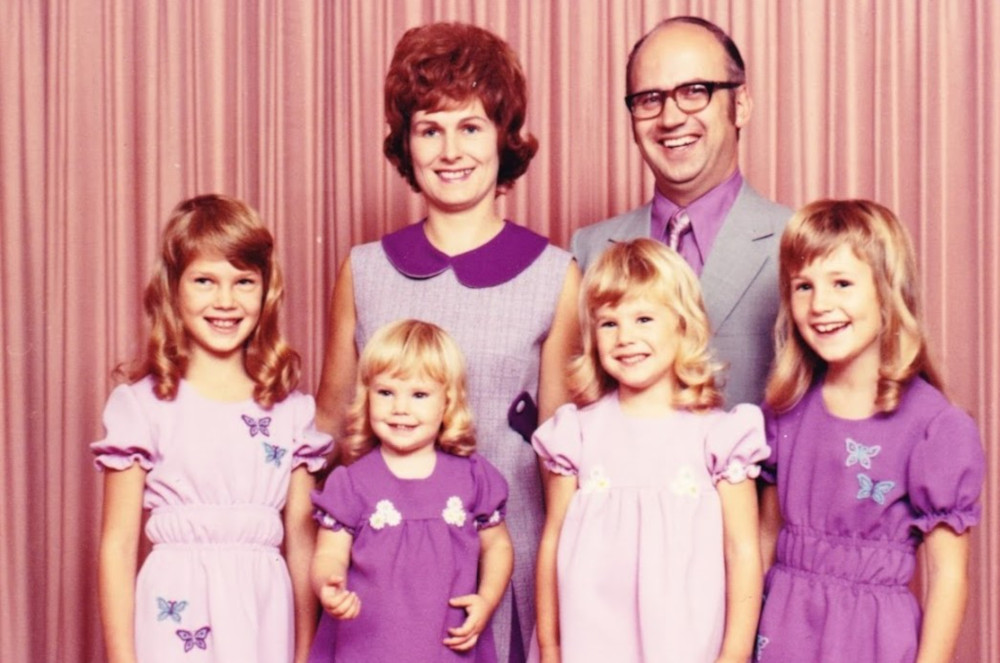
As well as her academic pursuits, Philpott played and taught piano in high school, took part in activities associated with her father’s church, and was not too shy to ride a float in the town parade.
Living where she did, it is not surprising that Philpott’s all-time favourite politician is Lester Pearson — a son of rural Ontario who improbably went on to become prime minister of Canada and a Nobel laureate for his peace efforts in the Middle East.
Philpott admired Pearson’s diplomacy and consensus building, skills she in part attributed to the fact that he was “blessed” with minority governments. She liked the way “Mike” Pearson had worked alongside Tommy Douglas on Medicare, which to her is a better way of conducting politics than today’s hyper-partisanship and cynical marketing. Pearson minority governments kept Canada out of the war in Vietnam, introduced student loans, the Canada Pension Plan, the Maple Leaf flag, and universal health care.
“It was not an accident that our most famous social policy came rooted in people working together,” she told me.
II. The doctor
But Philpott’s early life was no unbroken idyll of church, family, school, nature, and a yellow Labrador dog named Taffy. Tragedy struck the family early and hard. In an eerie way, like a boomerang, it would return years later to land another blow. While Jane’s family was living in Winnipeg, her brother was struck down during an influenza outbreak.
“I would have been in kindergarten and my elder brother in Grade 1. Gary got the flu and developed a rare condition from it called Reye’s Syndrome. He was just six or seven. My brother got extremely sick and died. It was a heartbreaking experience. He was a great big brother, incredibly kind to me. He died so quickly my mother had a very hard time. Father even left the ministry for a year, and we moved to the United States. He went to Princeton for a Master of Theology. I did Grade 1 in New Jersey.”
Passing through the crucible of mortal illness in the family that touched a loved one young and out of season, it is not surprising that Philpott later chose to become a doctor. Not that she hadn’t considered other options before deciding to meet the working world in a lab coat with a stethoscope around her neck.
“I did think once of becoming an engineer. I found the idea of designing bridges fascinating. But that would mean sitting in an office poring over plans all day. I opted for a profession with less desk and more human contact. Medicine combines a love of science with a love of people.”
In the serendipitous way that life sometimes unfolds, Philpott’s decision to become a doctor set the stage for meeting her future husband. After completing her medical training at Western University, and her family doctor residency in Ottawa, she joined a church that Pep Philpott also attended. They connected at a church softball game.
“I met him on a baseball diamond. I should say that I am a terrible, terrible athlete. It was not my athletic ability that attracted him.”
Philpott explained the story behind her husband’s unusual name.
“It was supposed to be Paul Ian Philpott, or Pip. It comes from the fact that his mother was a great Charles Dickens fan. He was the sixth child. But somehow that changed to Pep. He was called Pep since he was a week old.”
In a Dickensian way, Philpott had great expectations of herself. She could have settled into a comfortable life with her “very steady” husband, her kids (like her parents, she would have five), and her role in one of the helping professions.
There was also the beautiful cottage on Big Rideau Lake that had been in her husband’s family for 80 years. It was her favourite place on earth — for the scant two weeks a year she allowed herself a breather from working. It featured the perfect sanctuary — her family close, a little James Taylor wafting out of the cottage, and a good book on her lap.
But her faith and good fortune demanded more. Philpott fully realized that not everyone had had her advantages. That insight carried an obligation that directed her life, a little like the book that had had a “huge impact” when she read it — Nelson Mandela’s Long Walk to Freedom.
“We are put on Earth for a very short period of time. Because of all the unmerited things I got, I must give back and benefit the planet. I was given so much — publicly funded education, a family that loved me unconditionally, so that I was safe, secure, and cherished. Billions of others are born into poverty and disadvantage. So to whom much has been given, much is asked.”
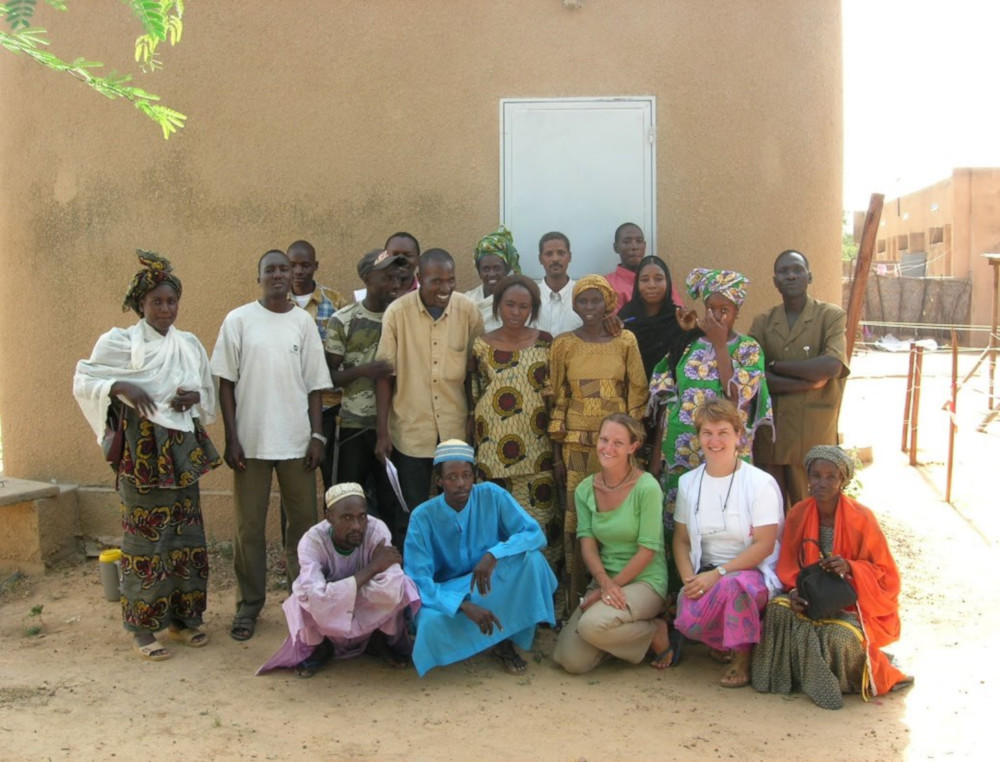
By any measure, Philpott has given back a lot. In addition to her medical practice, she has advocated for refugees and victims of HIV/AIDS. It was Philpott who initiated Give a Day’s Pay to World AIDS, which led to a 10-year relationship with the Stephen Lewis Foundation. She also helped train doctors in Ethiopia.
And from 1989 to 1998, Philpott practiced medicine in Niger Republic in West Africa. While there, she also helped develop a training program for village health workers. It was a rewarding experience that came with an endless supply of patients and a daunting view of the abyss.
“I learned that the world is a very unfair place. Twenty-seven per cent of children there [in Niger] didn’t live to see their fifth birthday. The country has extreme poverty, and is at or near the bottom of UN development indexes. It changed me dramatically to live amongst the people of Niger.”
Philpott and her family lived in rural outposts while in West Africa, an experience she later described as the happiest period of her life — with one shattering exception.
The family stayed longest in a small village called Galmi, a collection of mud huts with thatched roofs. It was bare bones living. The residents of Galmi ate a millet-based porridge for their main meal. Philpott delighted in their kindness and trustworthiness. It was a pristine, if simple paradise for raising children.
“My kids used to run out the door with nothing on but their underwear looking for hedgehogs and chameleons. My daughter Bethany climbed guava trees and read books there. There was no TV, and they were all voracious readers. They explored nature, played with friends.”
Then the boomerang of fate returned with a vengeance, bringing “unspeakable grief” to her family. Meningococcemia, a rapidly fatal infection if not treated immediately, struck her eldest daughter Emily. The Philpotts were two hours from the nearest hospital, and her 2.5-year-old needed to be treated with IV penicillin. Making the situation even grimmer, Emily’s sister, eight-month-old Bethany, was also showing signs of the virulent infection. The race against death was on.
“While we were speeding along that highway in Niger, we didn’t talk, we sort of sang and prayed. We knew at some level of our brains she [Emily] had died, but we couldn’t give up hope. I started doing CPR when she took her last breath.”
When the distraught mother had exhausted herself, Pep climbed into the backseat and took his turn trying to revive their lifeless child. Jane got behind the wheel and drove with the accelerator pressed to the floor — something she had never done. After what seemed an eternity, the hospital appeared like a mirage.
Baby Bethany, later to become a doctor herself, was treated and survived. But March 11, 1991, was the last day on earth for Emily Philpott. It was hard to believe that just the night before, the family had been relaxing poolside at the old French Club in Maradi. Emily had been jumping into the water and splashing around with the other kids. That same night, a Sunday, the family had attended church. A day later their world had changed terribly. The Philpott family was crushed, including Jane’s parents. Their misery came with an historical dimension.
“Strange and funny things happen in this world. My big brother Gary died as a child on March 12, 1966 — 25 years less a day before Emily. So it was doubly painful for my parents, thousands of miles away, when they learned that Emily had died. Gary and now Emily... It was the worst day of my life.”
Oddly enough, being in Niger helped Philpott deal with her grief. Death there was the final playmate for so many children. As a Christian, her religion acted as a balance in the hurly-burly of life. It gave her the conviction that things happened for a reason. Both of these factors helped her find a way to carry on without Emily.
“I miss her greatly and will always grieve the loss. But I also know that I suffered only a fraction of what other people experience. It was part of how I could get beyond my own grief. I knew I couldn’t bring Emily back, but there was something I could do that could prevent other children from dying.”
III. The cabinet minister
But it was events in Canada, not Africa that laid the foundation for Philpott’s next incarnation; the good doctor as politician. In 2011, Stephen Harper won his only majority government. To Philpott, back in Canada since 1998, and working as a family doctor and health administrator in Markham-Stouffville, it was a canary in the mine. Ironically, a woman she didn’t know yet was also propelled into federal politics by Stephen Harper — future cabinet colleague Jody Wilson-Raybould.
“I remember being very concerned with the policy and approach that Harper had to government, lack of focus on climate, antipathy to refugees, authoritarian impulses. I just didn’t think he was the right person to be running a majority government. I knew it was time to get involved.”
So did the chief talent scout of the Liberal Party of Canada. Philpott met former prime minister Paul Martin while working on her HIV/AIDS initiative for Africa. Martin touted the political life, arguing that a person could accomplish more in 10 minutes in government than in 10 years of advocacy work. His words proved to be prophetic — for a time.
“I think it was true,” Philpott told me. “For years, advocates had been asking for supervised injection sites. Politicians managed to push it through. But politicians can’t do their work alone. They need advocates pushing the envelope.”
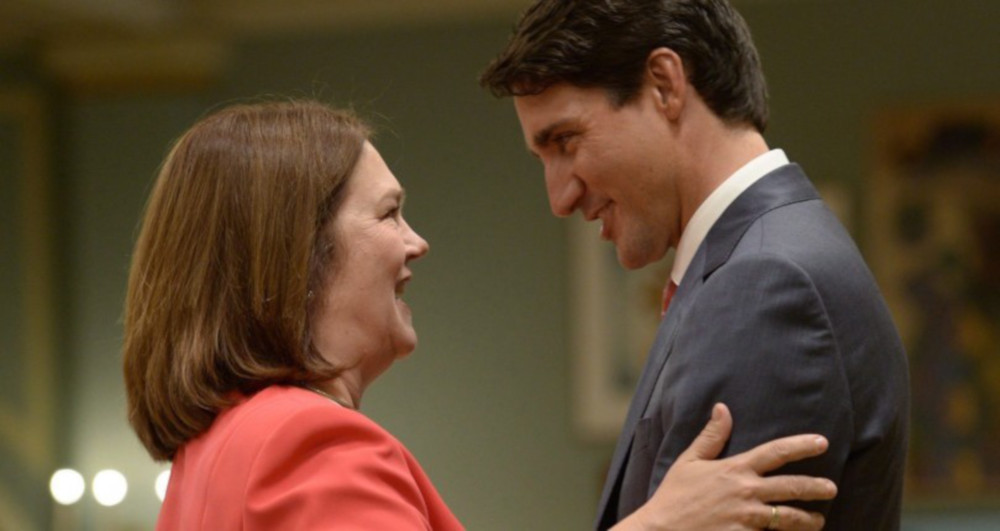
Philpott ran for parliament to represent her constituents, not to land a cabinet post. A good friend, NDP activist and humanitarian Gerald Caplan, had advised her to simply be the best MP she could be, and not get starry-eyed about getting the big job. Before she had much of a chance to follow his sage advice, Philpott’s talents became obvious to everyone, including the prime minister.
“I remember quite well the day I was called into a building on Slater Street, and being met by the PM designate, Gerald Butts and Katie Telford. Trudeau asked me to be his minister of health. It was an extraordinarily happy moment... I was surprised, and delighted to be asked into cabinet. But it was daunting too. I knew the top file would be medical-assisted dying and in those early months we were facing a Supreme Court of Canada deadline.”
And there was another issue besides the grave social matters she would be confronted with as a cabinet minister. What about her religious beliefs? How would this deeply religious woman square core Christian values with her new role as a senior legislator, where she would be faced daily with the tension between what French sociologist Emile Durkheim called the sacred and profane?
“As a policy-maker, I did not, and would not, assume that other Canadians thought the way I did about faith-based issues. I tried to find balance, respect autonomy, and recognize the inherent dignity and value of life. You must listen fairly to a whole range of people, knowing that you will never make them all happy. But you must be able to say you have listened well. I had a lot of practice at that. You can’t be a family doctor for 30 years without listening.”
Philpott’s tenure in cabinet showed how the ability to listen went hand-in-hand with getting things done. The neophyte politician delivered on the profoundly difficult issue of doctor-assisted dying. It was during those emotional and demanding months of steering Bill C-14 through the House of Commons that she and Jody Wilson-Raybould became fast friends.
Philpott also had a key role on the Indigenous file. She had always been dismayed by their “over-representation” when it came to children-in-care, and an infant mortality rate that was double the national average. Philpott was front and centre in the passage of Bill C-92, the government’s child-welfare legislation for First Nations, Inuit, and Metis children, youth, and families. She also applied herself to the perennial and often neglected issue of tuberculosis amongst the Inuit.
“That is something I feel very proud of, and that until now had never attracted the attention of the government. But here’s the thing. The social determinants of health make people healthy, not medicine.”
And then there was water.
As minister, Philpott had to grapple with the deplorable number of water advisories on reserves. Although 85 of these advisories have been lifted, an admirable accomplishment in keeping with Liberal campaign promises from 2015, there are still 58 to go. As often happens when someone sets out to fix something, the problem turned out to be bigger than anyone thought.
“Government discovered lots of water problems that existed for Indigenous people but were not counted because they were not considered to be part of the public system. I don’t think we appreciate to a significant enough degree the risks in not being able to have access to clean water. Grassy Narrows is still facing ongoing health challenges of contaminated water 50 years later. It is pretty surprising that we can’t seem to focus on how important it is to protect our water.”
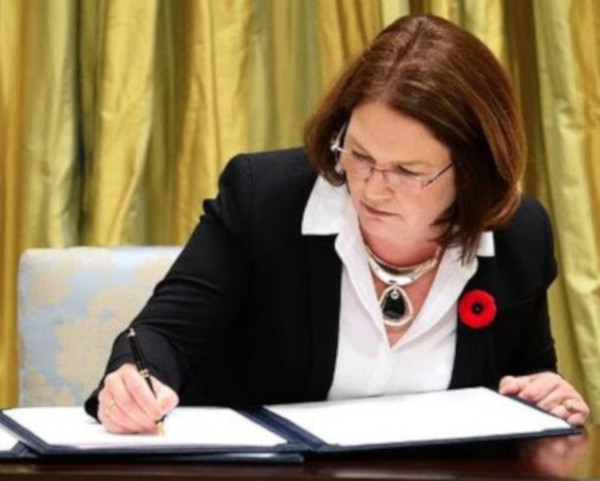
Through all of Philpott’s government work, Justin Trudeau sat at the head of the cabinet table. Unlike other ministers, she barely knew Trudeau, having only met him at the time of the Liberal leadership race. As was the case with Wilson-Raybould, Philpott did not have a personal relationship with the PM.
Was he the feminist he claimed to be? Although she unhesitatingly agreed that he cared deeply about women, and had helped their cause worldwide, she also tersely noted, “Being a feminist is a description with which people are free to self-identify, and hold themselves to account.”
Philpott is not reluctant to acknowledge the PM’s talents. She liked the way he chaired the meetings of the 30 most powerful people in the country — a nice balance between letting individual ministers have their say in cabinet, and airing his own thoughts. And she remembered that he also let cabinet ministers run their own show — with a few caveats.
“By and large, we were all allowed to run our own departments, though it changed a little bit based on the issue, and period of time in government. There was considerable opportunity to establish priorities and work with senior officials to move issues along.”
But cabinet was the real world, not heaven. Although Trudeau was a “very strong leader,” he had some critical shortcomings that needed work. One of them had to do with the advice he received. Philpott thought that the PM’s staff had an oversized influence on his decisions.
“It is absolutely true that those around him, unelected officials, have a big hand in what the PM thinks. Contrast that with the example of former PM Brian Mulroney, who not only met with caucus members, he reached out to them. Whoever is PM in October will hopefully do that.”
IV. The outcast
Though Philpott was mostly aligned with the legislative goals of the government, she had reservations over some of the priorities the PM set, and the narrow band of people who helped set them.
“At times, I would have picked different things to be discussing, but that’s reality. That’s the prerogative of the leader. He gets to steer the government in the direction he wants... I think that he could benefit from listening to a broader range of voices, including those who, from time to time, disagree with his approach.”
It was exactly such a disagreement that ended Philpott’s meteoric rise in the Liberal party and her cabinet career. It was a case of no retreat, no surrender from the moral high ground of the incontrovertible facts.
“There is no question in my mind that a number of people tried to influence the former AG on a decision that must be independent of political interference. That was a mistake and they were wrong to do so. I wanted them to acknowledge that, and get to the bottom of why that happened. I am still not sure that the PM and his office — and this is still somewhat mysterious to me — that they don’t understand that what they did was wrong.”
Philpott repeated that message every chance she could, including in January 2019, when Trudeau shuffled his cabinet. On the day that she became president of Treasury Board, and Wilson-Raybould was dumped as justice minister, Philpott expressed her strong views on the SNC-Lavalin case to the PM.
She delivered the same message to Trudeau that she had already given to other cabinet ministers and senior political staff. She told him that the matter was so serious that resignation was one of the options she was considering. All advised against that, but none wanted to listen, including the prime minister.
Philpott suddenly found herself in the loneliest place of all, a moral minority in a place where integrity routinely takes a backseat to ambition and political expediency. The newly minted president of Treasury Board went back to her riding to consider her options. As the crisis unfolded, one of the people she talked to was the man who had convinced her to enter politics, Paul Martin.
“We had a few conversations during the peak of the crisis. He has always been a very important mentor to me. He has always supported me personally. This issue was very difficult for him.”
But it was Philpott’s husband Pep, the person who had sacrificed “the most” to support Jane in her political career, who surprised her with his counsel.
“When I doubted that I should continue, he was the one who said you can’t give it up. In a way, he taught me that being in public life means you are not carrying a burden, but a responsibility. You just can’t run away from it.”
After talking to friends, family, and her “incredible” constituency members, Philpott responded to the “Pep” talk. She would remain the MP for Markham-Stouffville, sitting as an Independent, but made up her mind to resign from cabinet over the PM’s handling of the SNC-Lavalin affair. She reached that decision a week before it became public on March 4, touching off a national news frenzy amidst speculation that the PM might be on his way out.
The reprisals against Philpott were swift and merciless. The PM’s defenders pointed to the fact that he had not obstructed justice in any criminal way while pressuring then AG Wilson-Raybould to spare SNC-Lavalin a trial by offering the company a Deferred Prosecution Agreement (DPA). Philpott is not impressed with that line of defence.
“My gosh, politicians should have a far higher bar than illegality. What kind of world would we be in if adherence to the law was the only measure of acceptable behaviour? It’s not obstruction of justice in the criminal sense, so it’s OK? I think most people have higher expectations of their politicians than that.”
Her critics also sniped that Philpott’s resignation was based on her friendship with Wilson-Raybould, who had earlier resigned over the SNC-Lavalin affair. Philpott called that suggestion “absurd.”
Many of her colleagues and several media commentators warned gloomily of negative economic consequences for Canada if the law was fully applied to SNC-Lavalin’s alleged bribes in other countries. Their logic was repugnant to Philpott.
“There will always be people who find excuses, who think that the bar set for corporations is too high. They think that if a particular company bribes in certain countries, it’s a cost of doing business there. It’s not just the bribery, it’s propping up a government that tortures and abuses its own people in ways that are unthinkable. To think that is okay is not any government that I want to be part of.”
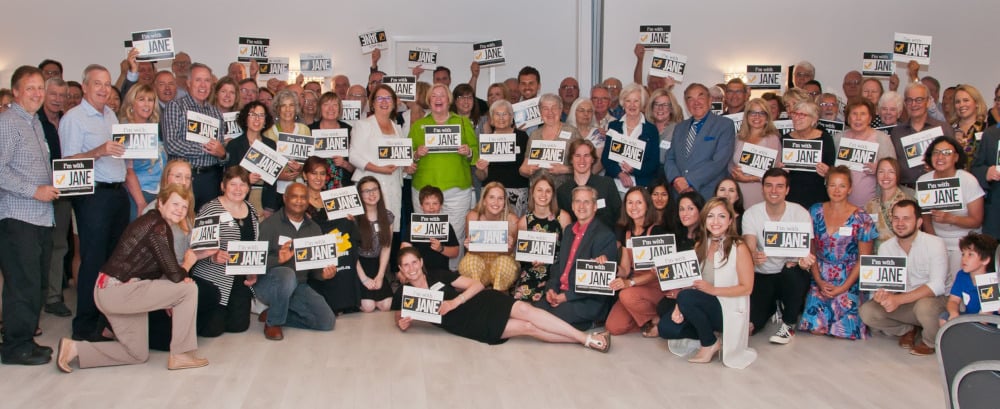
After resigning her post, Philpott asked to address caucus. Trudeau refused — an odd decision given that he had already extended that courtesy to Wilson-Raybould. Here is what Philpott would have told her colleagues had she been given the chance.
“One was just to reiterate my commitment to working together on policy priorities. I would also have said that I hope they recognized the importance of the independence of the justice system.”
It was a message the PM obviously didn’t want to hear. Having silenced her amongst her colleagues, Trudeau finished the job by booting Philpott out of the caucus along with his former justice minister. It is a decision that still has her shaking her head, partly because the move was couched in deception and dishonesty.
“It still largely shocks me that I was ejected from caucus. That happened without any consultation. The PM has implied otherwise, but I had zero communication with the PM. There is a story, a narrative that was put out, that there were significant overtures to solve the impasse. That is a distortion of the truth. That is not true... It’s really, really disappointing, though I suppose I shouldn’t be shocked... It comes down to people who have the power to distort history believing that if they distort it widely enough, it will become part of the public record.”
V. The buried truth, and the return of the preacher’s kid
There are many ragged edges to the SNC-Lavalin scandal, including the possibility that Trudeau’s new minister of justice will intervene in the ongoing criminal process and grant the company the DPA it so badly wants. David Lametti can make that intervention right up to a court’s sentencing decision.
The government could also change the regulations so that even if convicted criminally, SNC-Lavalin would still be able to bid on government contracts. But the biggest outstanding issue is the incomplete picture of what happened here. Will Canadians ever know the full story of how a sitting prime minister and his office meddled in a criminal case to have a decision that was already made reversed?
“I’m not sure that the whole story will ever come out. It is really complex — links between various officials both elected and unelected. Links here are pretty deep. There are things that I heard that won’t come out because of cabinet confidentiality. That said, Canadians can form an opinion from those things already on the public record. I would hope that if the whole story came out, people would understand why resignation was finally the only answer.”
Though it is difficult to do a cost-benefit of the workings of one’s conscience, Philpott has her eyes wide open with respect to the consequences of all that has happened.
“The good news, thanks to the former AG, is that the SNC-Lavalin case is proceeding, and that the interference was not successful. I think the whole thing made people more cognizant of the need for judicial independence. The way it was handled by the government had a negative impact on the party, because party obligation has proven to override an MP’s freedom to express dissent.”
And then there is the positive feedback in her riding.
“So far, the reception I have been getting is quite positive. I was out door-knocking just yesterday — some are very enthusiastic, some indifferent, but very rarely do I run into people who are upset with the course I took.”
When Wilson-Raybould publicly resigned from cabinet, she felt a sense of “bounciness,” the realization that she was now free to talk about most things in a way in which cabinet ministers are not. Philpott also experienced that sense of liberation. Although she acknowledged being in cabinet for the approval and purchase of the controversial Trans Mountain pipeline, and accepted solidarity on that issue, this is how she feels today.
“I am now unbound of cabinet solidarity. I think the more recent decision is pretty hard to make a case for, especially with a climate emergency being declared... There does come a point when you can't have it both ways. You can’t spend billions of dollars, and billions of public dollars, to increase greenhouse gas emissions, and at the same time be seriously acting on the climate breakdown that is putting our planet at risk.”
So if the good news is that the SNC-Lavalin case proceeded, her constituents still support her, and she now has more intellectual freedom to speak out, what is the bad news?
“I’ve lost some opportunities to have a more direct impact on government decisions and to be able to serve people in that way... But what I’ve been able to retain is my own integrity. I can’t imagine what it would be like to be in cabinet, and have someone ask me what I thought about the SNC-Lavalin affair. I couldn’t lie. I couldn’t stay under circumstances where I would be forced to lie. I paid a personal price for walking away, but if that does something about changing the notion of party discipline, if that lets future politicians speak the truth without fear of reprisals, then I’m happy to have helped in the long history of Canadian democracy.”
So at the end of it all, how does the doctor assess the maladies of that grandest of patients, Canada?
“I think Canadian democracy is suffering from wounds, it’s wounded. The diagnosis would be I think that Canadians have to pay greater attention to the importance of being informed. We need a more engaged citizenry. It has never been more important to call politicians to account.”
Once a PK, always a PK. ![]()
Read more: Election 2019, Rights + Justice, Federal Politics



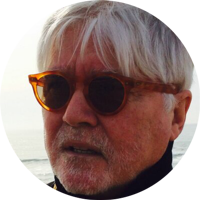
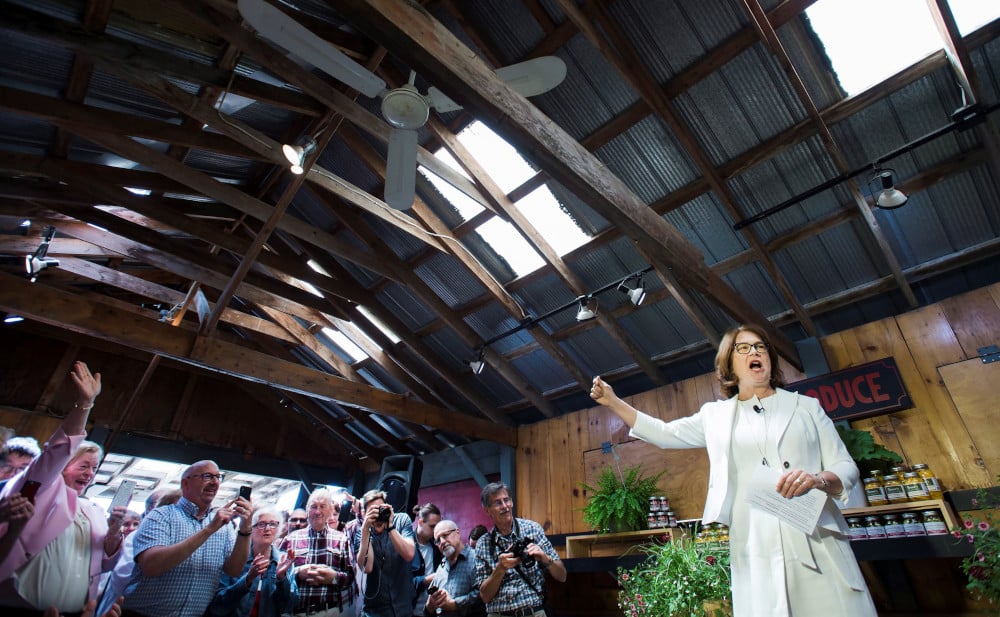












Tyee Commenting Guidelines
Comments that violate guidelines risk being deleted, and violations may result in a temporary or permanent user ban. Maintain the spirit of good conversation to stay in the discussion.
*Please note The Tyee is not a forum for spreading misinformation about COVID-19, denying its existence or minimizing its risk to public health.
Do:
Do not: